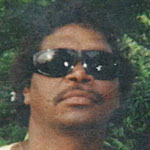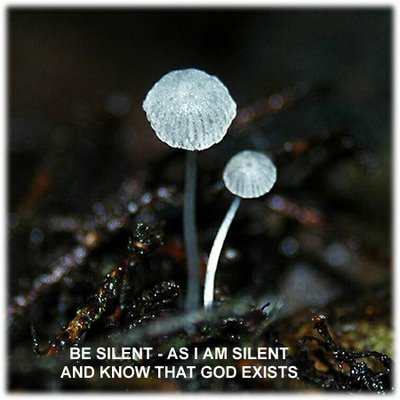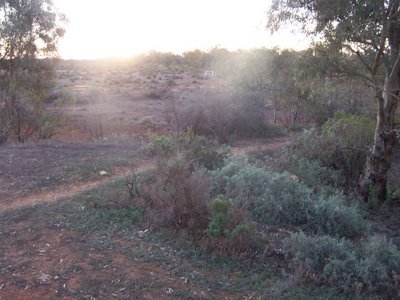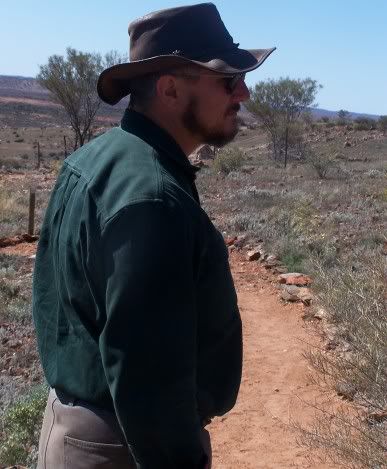 Miss Eagle received news this afternoon of the result of the Coroner's findings on the death of Mulrunji (otherwise known as Cameron Doomadgee). The Coroner found that an individual policeman kicked Mulrunji and so contributed to his death. Miss Eagle hesitates to call the Coroner's finding justice: vindication, yes; justice, yet to be seen.
Miss Eagle received news this afternoon of the result of the Coroner's findings on the death of Mulrunji (otherwise known as Cameron Doomadgee). The Coroner found that an individual policeman kicked Mulrunji and so contributed to his death. Miss Eagle hesitates to call the Coroner's finding justice: vindication, yes; justice, yet to be seen.INVESTIGATION OF MULRUNJI’S DEATH
1. The arrest of Mulrunji was not an appropriate exercise of police discretion. There were a range of alternatives to arrest available that should have been preferred. These include giving a caution, issuing a direction or commencing proceedings by way of notice to appear or summons.
2. The Police Powers and Responsibilities Act 2000 (PPR Act) should be amended to
reflect the principle of arrest as a last resort. This might be achieved by amending s 198
to provide that a police officer may only arrest an adult without warrant where the
officer reasonably suspects that he or she has committed an offence and where they
reasonably believe that no other action, in all the circumstances, is appropriate given
the matters set out in s 198.
3. The PPR Act should be amended to include an explicit statutory duty to consider and
utilise alternatives to the detention of intoxicated persons in police cells.
4. The Operational Procedures Manual (OPM) should be amended to instruct officers to
consider arrest as a last resort and consider all alternatives before arresting a person,
particularly in cases of minor offences.
5. The OPM should be amended to reinforce the need to consider and utilise alternatives
to the detention of intoxicated persons in police cells.
6. The inappropriate arrest of Mulrunji reflects a lack of awareness of the legal bases upon which a person may be arrested without a warrant. The Police Commissioner should
consider whether this reflects upon police training generally or a need for further training of Senior Sergeant Hurley or other officers who gave evidence at this inquest.
7. The decision to arrest Mulrunji also reflects a lack of awareness of the alternatives to
arrest and confusion about their availability in the case of intoxicated persons. The
Police Commissioner should consider whether this reflects upon police training 27. The involvement in the investigation of Mulrunji’s death of officers from Townsville and Palm Island was inappropriate and undermined the integrity of the investigation.
8. The decision to arrest Mulrunji and the evidence of Senior Sergeant Hurley discloses a
lack of awareness of, and a failure to take into account, the recommendations of the
RCIADIC relating to the arrest of Aboriginal people for drunkenness and public order
offences. The Police Commissioner should consider whether this reflects upon police
training generally or a need for further training of Senior Sergeant Hurley and the other
officers who gave evidence at this inquest.
9. The Police Commission should give particular attention to the training of officers
working in Aboriginal communities. Such training should be provided prior to any
service in Aboriginal communities and should deal specifically with the
recommendations of the RCIADIC and how these are relevant to policing and the
exercise of discretion to arrest. Training should include ‘experiential training’ based on
the Kowanyama trial, as identified in the Cape York Justice Study.
10. Immediate attention should be given by the Queensland Government to the proper
funding and support of the Community Justice Group on Palm Island.
DIVERSIONARY CENTRES AND COMMUNITY PATROLS
11. Urgent attention should be given by the Queensland Government to the establishment of a diversionary centre on Palm Island to provide an alternative to police custody for people who come to the attention of police while intoxicated.
12. Such a centre should be established following consultation with the Palm Island
community and its design and operation must be responsive to local conditions and
needs.
13. The establishment of a diversionary centre should be accompanied by the development of a protocol with the Queensland Police Service, in conjunction with the Palm Island community, as to its use as an alternative to detention.
14. The establishment of a diversionary centre should also be accompanied by training of
police officers working on Palm Island as to the use of the centre as an alternative to
detention.
15. Urgent attention should be given by the Queensland Government to the establishment of a community patrol on Palm Island.
16. The structure and functions of such a community patrol should be developed following consultation with the Palm Island community.
17. It is vital that any community patrol that is implemented on Palm Island is adequately supported and funded to ensure its success.
ASSESSMENT AND MONITORING OF HEALTH
18. There was no assessment of Mulrunji’s health upon being received into police custody at the Palm Island Watchhouse. There was no adequate reason for this failure.
19. The OPM should be amended to fortify the direction given to police in relation to the
conduct of a thorough initial health assessment of any person brought into police
custody. In particular, the OPM should note that where a person taken into custody is
unable initially to be properly assessed because they are violent, aggressive or non-
cooperative, consideration must be given to conducting an assessment by another
means (such as through the cell door) or having another officer conduct the assessment.
In the event that an assessment still cannot be conducted, further attempts must be made
at the earliest available opportunity.
20. The OPM should be urgently reviewed with a view to providing a much greater level of practical guidance to officers on how to conduct health assessments and checks of
persons in their custody.
21. Pending such review, the OPM should be immediately amended to incorporate the
Medical Checklist currently used by Victorian Police. Queensland police should receive
training in the use of that checklist and commence using it immediately.
22. The failure to properly assess Mulrunji’s health suggests a lack of appropriate training for officers in the conduct of health assessments of people in custody. The Police
Commissioner should urgently consider increased and improved training of police
officers in relation to health assessments, particularly for officers in charge of watchhouses who should receive more intensive and specialised training.
23. The content and scope of such training should take into account the RCIADIC
recommendations, in particular:
• Such training should include information as to the general health status of the
Aboriginal population, the dangers and misconceptions associated with
intoxication, the dangers associated with detaining unconscious or semi-rousable
persons and the specific action to be taken by officers in relation to those matters;
and
• In designing and delivering such training programs, custodial authorities should
seek the advice and assistance of Aboriginal Health Services and Aboriginal Legal
Services.
SUPERVISION, MONITORING AND CARE IN CUSTODY
24. The Police Commissioner should consider the need for greater training in relation to
monitoring equipment of officers who are in positions that may require them to have
responsibility for people held in custody,
25. Theoretical and practical training in first aid and resuscitation should be mandatory for all officers who are in charge of a police watchhouse. Wathchhouses should be
resourced with appropriate equipment to enable first aid and resuscitation to be
provided whilst maintaining proper workplace health and safety standards and
protection for police officers.
26. People in custody should not be left unmonitored under any circumstances. The Police Commissioner should conduct an urgent review to ensure that this practice is not
undertaken elsewhere in Queensland and that staffing levels are adequate to ensure that
persons kept in custody are never left unmonitored.
INVESTIGATION OF MULRUNJI’S DEATH
27. The involvement in the investigation of Mulrunji’s death of officers from Townsville
and Palm Island was inappropriate and undermined the integrity of the investigation.
28. In all deaths in custody, officers investigating the death should be selected from a
region other than that in which the death occurred. The OPM should be amended to
require this.
29. The OPM should be amended to require the appointment of the officer in charge of.
30. The OPM should be amended to make explicit the need to consider, when selecting
officers for involvement in an investigation of a death in custody, the impartiality and
the appearance of impartiality in the conduct of the investigation.
31. The involvement in the investigation of Mulrunji’s death of officers who knew Senior Sergeant Hurley personally, or were friends with him, was inappropriate and
compromised the integrity of the investigation.
32. The OPM should be amended to explicitly require officers involved in an investigation into a death in custody to disclose any relationship with an officer involved in, or a witness to, that death.
33. The investigation’s appearance of impartiality was further undermined by the following conduct:-
• It was inappropriate for Hurley to meet the investigating officers at the airport upon
their arrival;
• It was inappropriate for Hurley to drive the investigators to the scene of Mulrunji’s
arrest; and
• It was completely unacceptable for investigators to eat dinner at Hurley’s house
while the investigation was being conducted.
34. The OPM should be amended to more clearly state the need for officers involved in an investigation to consider the impartiality and the perception of impartiality in the
conduct of the investigation at all times.
35. The discussion by Senior Sergeant Hurley of the death of Mulrunji with Sergeant Leafe and Police Liaison Officer Bengaroo prior to being interviewed was inappropriate and contrary to the OPM. It had the potential to undermine the integrity of the investigation and undermine the appearance of integrity of the investigation.
36. The OPM should be amended to require the officer in charge of an investigation of a
death in custody to instruct officers involved in, or witness to, the death not to discuss
the matter with other witnesses prior to being interviewed.
37. Consideration should be given by the Police Commissioner to the training officers
receive to ensure they are aware of their obligations under the OPM if involved in
deaths in custody. In particular the Commissioner should ensure that officers strictly
comply with section 16.24 (vi) to (viii) of the OPM and immediately arrange for the
next of kin to be notified where a death in custody occurs.
38. The CMC should be actively involved in all investigations into deaths in custody from the outset. Consideration should be given to having a senior officer of the CMC
involved in all investigations into deaths in custody.
39. Difficulties in cross-cultural communication between police and Aboriginal witnesses may have impaired the effectiveness of the investigation of this matter by police. Significant attention should be given by the Police Commissioner to the training of officers, particularly those who are working in or near large Indigenous communities
such as Palm Island in relation to communication with Indigenous people and the use of
support persons and interpreters. This is a matter that is fundamental to the effective
and fair administration of justice in Queensland.
40. The OPM should be amended to include, as an appendix, Chapter 9 of the Supreme
Court of Queensland Equal Treatment Benchbook on ‘Indigenous Language and
Communication’. The OPM should direct officers to follow and apply the contents of
that chapter to the greatest extent possible.









